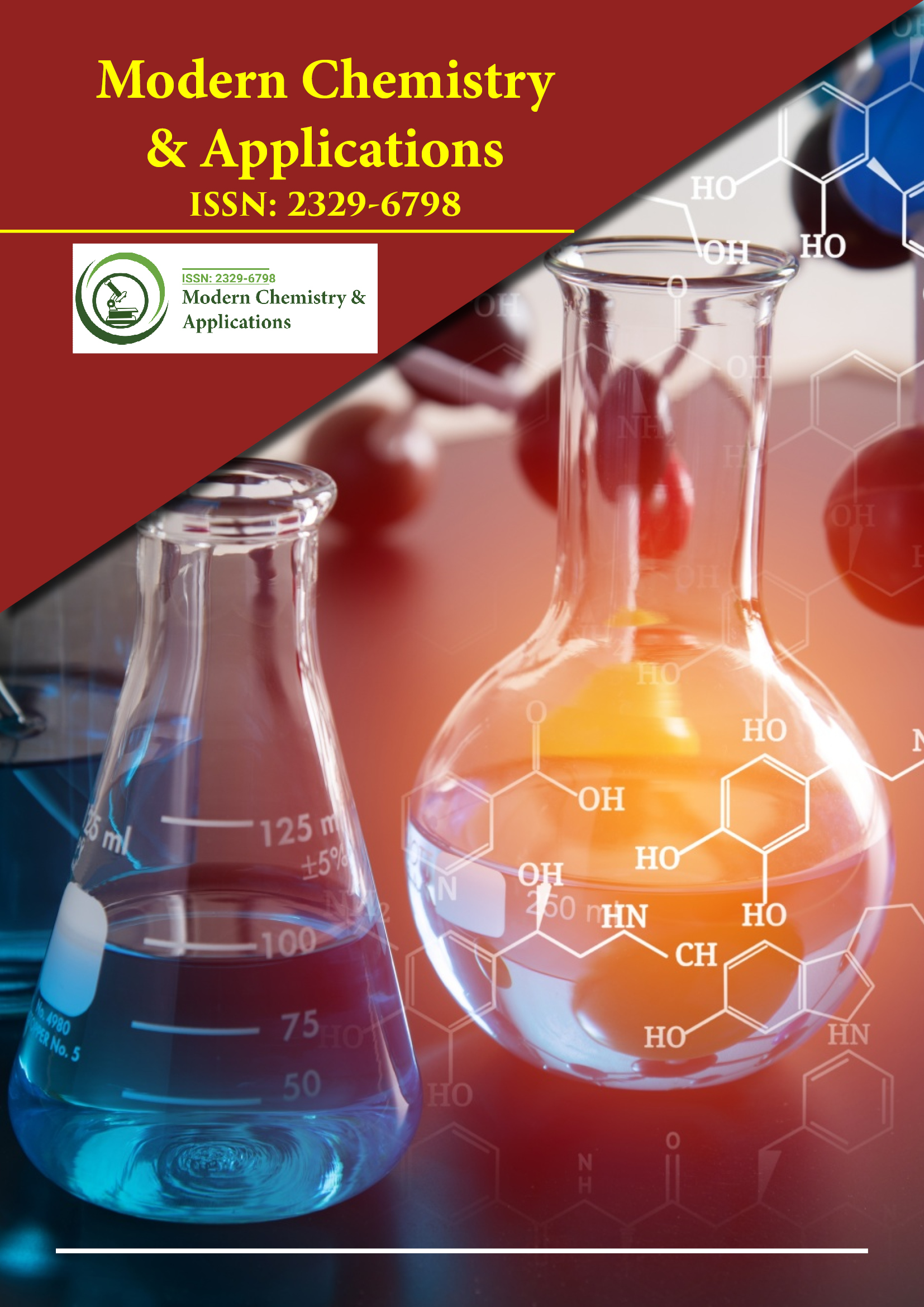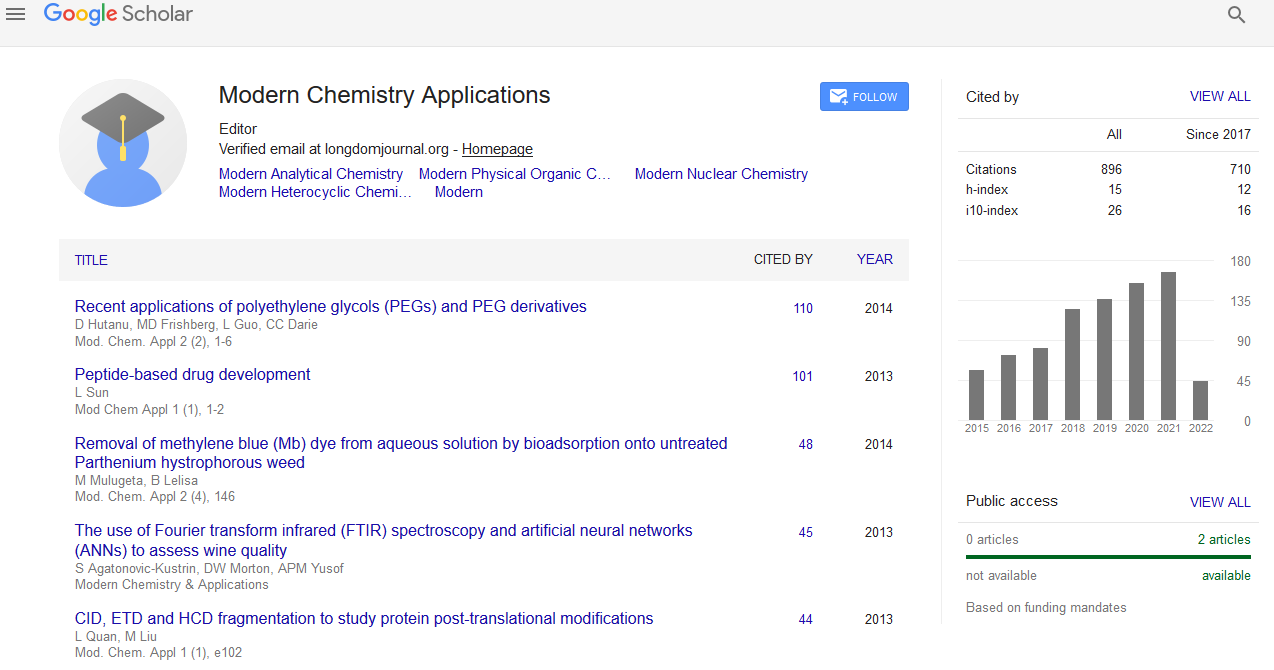Indexed In
- Open J Gate
- JournalTOCs
- RefSeek
- Hamdard University
- EBSCO A-Z
- OCLC- WorldCat
- Scholarsteer
- Publons
- Geneva Foundation for Medical Education and Research
- Google Scholar
Useful Links
Share This Page
Journal Flyer

Open Access Journals
- Agri and Aquaculture
- Biochemistry
- Bioinformatics & Systems Biology
- Business & Management
- Chemistry
- Clinical Sciences
- Engineering
- Food & Nutrition
- General Science
- Genetics & Molecular Biology
- Immunology & Microbiology
- Medical Sciences
- Neuroscience & Psychology
- Nursing & Health Care
- Pharmaceutical Sciences
Nanofiber mats fabricated by solution blow spinning as potential substrates for cardiac cell culture
5th Global Chemistry Congress
September 04-06, 2017 | London, UK
Ewelina Tomecka, Michal Wojasinski, Elzbieta Jastrzebska, Michal Chudy, Tomasz Ciach and Zbigniew Brzozka
Warsaw University of Technology, Poland
Scientific Tracks Abstracts: Mod Chem Appl
Abstract:
In recent years, there is a growing interest in the use of nanofibers for cell culture. Nano fibrous materials have many advantages such as: high porosity, high surface to volume ratio and they are structurally similar to extracellular matrix (ECM). Furthermore, nanofibers structure influence on cell orientation, which allow mimicking natural organization of cardiac cells. Most researches use electrospinning for nanofibers fabrication. However, low efficiency of this technique doesnâ??t allow to use it for large-scale production of nanofibers. We propose a rarely used method - solution blow spinning (SBS), which allows scale-up the nanofibers manufacturing process to the commercial level. This work presents the comparison and evaluation of cardiac cell proliferation on poly-(L-lactic acid) (PLLA) and polyurethane (PU) nano-fibrous mats fabricated by SBS. For the experiments, three different cardiac cell lines were used (figure 1). Cell cultures were performed for seven days on non-modified and protein-modified nanofibers surface. Obtained results of cardiac cell culture on investigated surfaces of nanofibers were compared to results of cardiac cell culture on polystyrene (PS) surfaces modified in the same way. The results showed the all types of investigated cells cultured on nanofibers (PLLA and PU) have more elongated shape than cells cultured on PS surface. Moreover, cells were arranged in parallel to each other, according to fibers orientation. In contrast, cells on PS surfaces were oriented randomly. Furthermore, in most cases, the cells proliferated better on nanofibers (PLLA and PU) than on PS surfaces modified in the same way. The results indicated that polymeric nanofibers (PLLA and PU) are better substrates for cardiac cell culture than PS surface and they enable cultivating these cells with conditions more similar to in vivo environment.
Biography :
Ewelina Tomecka received her MSc in Biotechnology from Warsaw University of Technology in 2011. Now, she is a PhD student at Institute of Biotechnology (WUT) and a member of Chemical Sensors Research Group. Her current research interests include “Development of a microfluidic cardiac cell culture model”.


